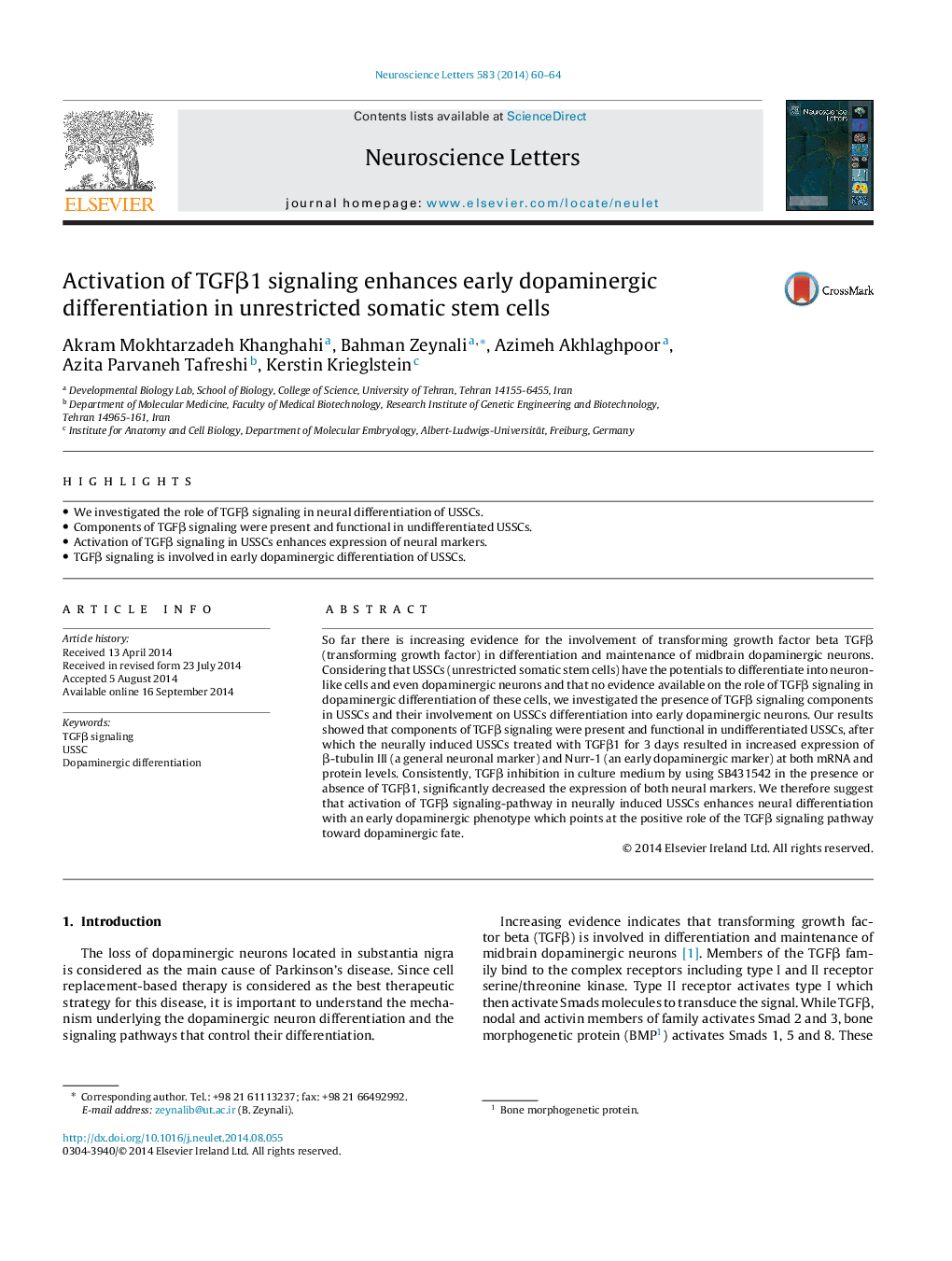| Article ID | Journal | Published Year | Pages | File Type |
|---|---|---|---|---|
| 4343554 | Neuroscience Letters | 2014 | 5 Pages |
•We investigated the role of TGFβ signaling in neural differentiation of USSCs.•Components of TGFβ signaling were present and functional in undifferentiated USSCs.•Activation of TGFβ signaling in USSCs enhances expression of neural markers.•TGFβ signaling is involved in early dopaminergic differentiation of USSCs.
So far there is increasing evidence for the involvement of transforming growth factor beta TGFβ (transforming growth factor) in differentiation and maintenance of midbrain dopaminergic neurons. Considering that USSCs (unrestricted somatic stem cells) have the potentials to differentiate into neuron-like cells and even dopaminergic neurons and that no evidence available on the role of TGFβ signaling in dopaminergic differentiation of these cells, we investigated the presence of TGFβ signaling components in USSCs and their involvement on USSCs differentiation into early dopaminergic neurons. Our results showed that components of TGFβ signaling were present and functional in undifferentiated USSCs, after which the neurally induced USSCs treated with TGFβ1 for 3 days resulted in increased expression of β-tubulin III (a general neuronal marker) and Nurr-1 (an early dopaminergic marker) at both mRNA and protein levels. Consistently, TGFβ inhibition in culture medium by using SB431542 in the presence or absence of TGFβ1, significantly decreased the expression of both neural markers. We therefore suggest that activation of TGFβ signaling-pathway in neurally induced USSCs enhances neural differentiation with an early dopaminergic phenotype which points at the positive role of the TGFβ signaling pathway toward dopaminergic fate.
